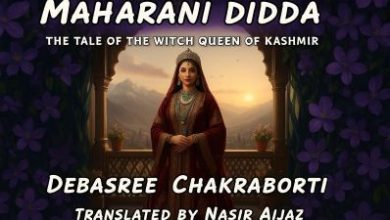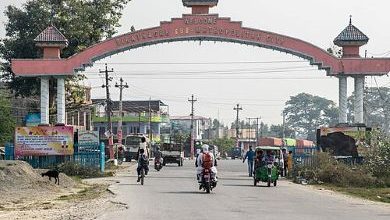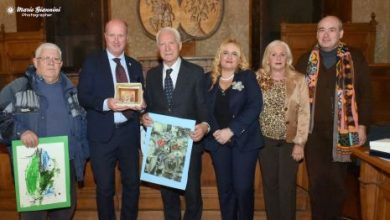Disastrous September – A Novel on 9/11 Terrorist Attacks Part-4

In memory of the 2981 victims of the September 11, 2001 terrorist attacks on the World Trade Center, among them three Albanians: Frrok Camaj, Mon Gjonbalaj and Simon Dedvukaj
[Disastrous September, by the Albanian-American author, Skifter Këlliçi, takes place on two different days: May 10 and September 11, 2001. The novel tells the story of a well-known CNN reporter named Steve Ferguson, engaged to Jacqueline Cramer, a flight attendant based at Logan International Airport in Boston, Massachusetts. In addition, the novel explores the lives of four Albanians. Besim Istrefi, Rrok Camaj, and Marko Muzaka worked as window washers in the Twin Towers. Sokol Kama, a journalist and writer, works in security at Logan International Airport. On September 11, 2001 just a few days before Steve and Jacqueline’s wedding, two planes, bound for Los Angeles, depart from Boston. Terrorists hijack them and crash them into the Twin Towers in New York. The author, who worked at Logan International Airport during the attacks, offers a gripping account of the tragedy and shows how it could have been avoided.]
By SKIFTER KELLICI
[Translated from the Albanian by Carrie Hooper]
Sokol remembered the first day he had seen Fatie. The many horrors she had lived through had scarred her soul, and she had looked terrified. Sokol learned what had happened to her and her four friends in the small Afghan village where they had been born and raised. They wanted to go to school, read more than the Koran, and hang out with their friends. They opposed wearing the burka. In short, they wanted the freedom to be themselves. When the Taliban found out, they were outraged, searched for them everywhere, and wanted to burn them alive in public. But the villagers hid them. The Taliban killed Fatie’s family since they couldn’t find her or her friends. A villager helped the girls escape to another village where the residents sheltered them, cared for them, and fed them. They moved from one village to another with the Taliban in hot pursuit. One day, as the girls were running toward the International Red Cross building, the Taliban shot and killed three of them. Fatie and a friend survived and came to America.
“I don’t understand why men in their twenties embrace the Taliban’s warped beliefs,” said Sokol. “I was shocked to read they are proud to die for their cause.”
“They are fanatics,” sighed Fatie. “They don’t recognize any book but the Koran, and they read a special edition, given to them by Osama bin Laden. Conditions in Afghanistan worsened once he arrived in 1996. When my friend and I were in hiding, we heard the villagers say bin Laden and his friends from Al Qaeda wandered through the area. He made our lives miserable, and I’m sure he will continue to wreak havoc in America because according to him, the countries in the West, especially the United States, are Islam’s greatest enemies. But he will probably be killed one day. Don’t you agree?”
 “I don’t know. But one thing is certain: bin Laden and Al Qaeda pose the greatest threat to the world. We are in danger every minute, especially here where we work.”
“I don’t know. But one thing is certain: bin Laden and Al Qaeda pose the greatest threat to the world. We are in danger every minute, especially here where we work.”
Fatie shivered and felt bin Laden’s presence, even in the airport.
“Are you cold, Honey?” Steve asked Jacqueline as she buttoned up the jacket Besim had given her.
“Only you can warm me up,” she laughed.
“Even I, who am used to working in the cold, am a little chilly today,” said Besim. “Let’s go to Said’s office. He’s waiting for us.”
“Okay,” said Steve. “Now I know how high up you work.”
“When you get in that cage, and the wind rocks it like a cradle, you’ll really get a feel for these heights,” said Marko. “To tell you the truth, I get scared up there.”
“That doesn’t mean Steve will be,” said Besim.
“I’ll let you know how I felt once I’ve done it,” said Steve, looking at Jacqueline.
The group reached the elevator that would take them to Said’s office on the 50th floor. When it stopped on the 64th floor, an older man got in.
“That’s Rrok Cemi,” said Besim. “Another Albanian who works for this company.”
“Does he work in the Towers?” asked Steve.
“No,” said Rrok. “I’m not as brave as Marko and Besim. I’m a mechanic on the lower floors.”
“Everyone chooses the job they like best,” said Steve, when Rrok seemed a little uncomfortable.
“The night of November 28, 1989, a group of us gathered in a New York hotel to celebrate our Independence Day, and Rrok introduced me to Marta, his niece, my future wife,” said Besim. “I was almost 50 years old, but better late than never, right? We liked each other, and soon we got married. We have a son named Trim (which means brave).”
“How many kids do you have,” Jacqueline asked Rrok.
Rrok hesitated for a moment.
“He never got married,” said Besim.
Steve looked at Jacqueline, as if he wanted to tell her not to ask too many personal questions.
“Such is life,” said Rrok.
“Aren’t you from Montenegro like Besim’s wife,” asked Jacqueline.
Rrok nodded.
“My wife is a Christian, and I am a Muslim,” said Besim.
“At one time, mixed marriages were not allowed because they violated the teachings of the Koran,” said Steve. “Fanatics still don’t approve of them.”
“Religion never caused us any problems,” said Rrok. “Especially nowadays. We come from the same place, speak the same language, and share the same blood. That’s all that matters.”
I told my wife and son, I will come for you as soon as we liberate Kosovo. I returned to my homeland to join the other young people in the Liberation Army, and I remembered a poem written in 1937 by the well-known Albanian poet, Esat Mekuli.
Steve was amazed.
“I read that Albanian Muslims are different from Islamic extremists,” he said. “This shows how noble the Albanians are. Other nations still suffer from this social plague.”
“If religion mattered, the Albanians wouldn’t survive. The three main religions in Albania are Islam, Catholicism, and Orthodoxy,” Besim explained.
“I witnessed this religious tolerance when I visited Albania for the first time,” said Marko. “I was amazed.”
They had reached the 25th floor.
“I have to get back to work,” said Rrok. “I can’t wait to see your documentary on CNN.”
He said good-bye and left.
“Rrok could retire, but he likes his job. He will continue to work until we decide to return home,” said Besim.
“I want to keep working, too,” said Steve.
As they walked along, Said Akbar, a young man with curly hair and spiffy clothes, which contrasted nicely with his dark skin, greeted them.
“I’d like to interview you, Mr. Akbar,” said Steve.”
“I can’t be part of your documentary,” said Said, “because I give Besim and Marko orders from the comfort of my office, not from the cage they work in on the 107th floor.”
“I understand,” said Steve, “but Besim told us how you rose in this company, and that’s absolutely remarkable. Therefore, you belong in the documentary.”
“Then let’s go to the restaurant,” said Said.
The sun shone through the windows and reached the table where Steve, Jacqueline, Besim, Marko, and Said were sitting.
“Two years ago, you married an American you met in this building?” Steve asked.
Said nodded, smiled, and showed his white teeth which made him more attractive.
“Serena and I will be parents in September.”
“Oh, Jacqueline and I are getting married on September 16!” Steve almost shouted.
“Perhaps our child will be born the same day,” said Said.
Jacqueline and Steve looked at each other, as if they were trying to tell each other something.
“What about you, Besim? Do you have any plans for September?” asked Jacqueline.
“I’ll be retiring and moving back to Kosovo with my wife and son,” he said. “And so is Rrok.”
Steve and Jacqueline were surprised to hear this.
“But you’ve lived here for many years,” said Jacqueline. “You’re Americans now. You work and have a family. Why do you want to leave?”
“There’s an old Albanian proverb: A stone longs for its country,” said Besim, his voice breaking. “We, the rocks of our country, long for our homeland.”
After a brief pause, he continued: “Two years ago, in 1999, the so-called butcher Millosheviq sent Serbian troops to Kosovo to kill as many Albanians as possible. Indeed, they killed many, and over a million were forced to leave. I dreamed of returning to my birthplace. I joined the Kosovo Liberation Army shortly after its formation.”
“The Serbs massacred Albanian civilians,” said Steve.
Besim shook his head in pain.
“I told my wife and son, I will come for you as soon as we liberate Kosovo. I returned to my homeland to join the other young people in the Liberation Army, and I remembered a poem written in 1937 by the well-known Albanian poet, Esat Mekuli. At that time, the Serbian publicist, Cubrillovic, wrote a memorandum in which he demanded that Albanians from Kosovo be sent to Turkey. I translated Esat Mekuli’s poem into English.”
Besim closed his eyes, as if trying to remember the poem, then recited:
“Can you blame Albanians
For wanting to live in their country
Until the end of time?!
Is it a crime Albanians still stand
Under Mother Kosovo’s sky
In the land of their ancestors
Despite their pain?!”
This profound poem touched Steve and Jacqueline.
Besim continued: “One day, other soldiers and I learned that Serbian paramilitary forces had captured several women, children, and elderly people and planned to burn them alive in a nearby stable. We arrived just as they were about to massacre unarmed civilians. We could hear women and children screaming. During the fighting, I got shot, just as I had when I fled to Albania, and almost fell into the arms of the people who had sentenced me to death in my absence. Some villagers rescued me and helped me cross the border into Macedonia. Though wounded, I managed to board an American military jet which had been sent to bring us Albanian-Americans back to the States temporarily.”
Jacqueline felt sorry for Besim.
“Thanks to an ultimatum issued by President Bill Clinton as well as the NATO bombings, the Serbs were forced to leave Kosovo,” said Besim. “Now that peace has returned, I see no reason for my family and me to stay here even though I call America my second home.”
“YOU’RE right,” said Jacqueline. “We Americans tend to forget that our ancestors, like you, came here for a better life.”
“My parents, who are Arberesh, came here 40 years ago and are considered new immigrants,” said Marko.
His words made Steve smile.
“Jacqueline and Marko are right. Take me, for example. The Fergusons came here over a century ago from the rocky mountains of Scotland, but I have never been there. I don’t know if any of my relatives still live there. What about you, Jacqueline? Do you know anything about your German heritage?”
Read: The Lament of the Earth – A Bouquet of Poems from Kosovo
Jacqueline shrugged her shoulders with guilt.
“No. There are many Kramers in Bavaria in southern Germany, but I don’t know if they are related to us. No one in my family speaks German.”
“I give Besim, Rrok, and Sokol a lot of credit for wanting to go back to their homeland,” said Steve. “Unlike us, they were born and raised there so have many memories of their country.”
“America is beautiful, and people can earn good money here,” said Marko, “but I can’t wait to go back to Italy.”
“So you can marry a beautiful Arberesh girl,” joked Besim.
“Exactly. Last year, during a visit to my hometown of San Demetrio, I met a girl, and she’s coming to visit her family in September.”
 Steve’s eyes widened, and he said, “There’s a lot going on in September besides our wedding. Said and Serena are expecting their first child. Besim and Rrok are going home. Marko is getting married. Wouldn’t it be nice to invite them to our wedding?”
Steve’s eyes widened, and he said, “There’s a lot going on in September besides our wedding. Said and Serena are expecting their first child. Besim and Rrok are going home. Marko is getting married. Wouldn’t it be nice to invite them to our wedding?”
Jacqueline jumped for joy and hugged Steve.
“That’s a wonderful idea!” she said. “Will you come to our wedding?”
“Of course,” said Besim. “We are honored to be part of this celebration. You’re a wonderful couple.”
“I’d like to invite another friend of yours,” said Steve. “Can you guess who?”
“Sokol Kama,” said Jacqueline. “That means we’ll have lots of Albanians.”
While they were talking, a man approached their table.
“That’s Jaser al-Sadri,” said Said. “He works for our company, too.”
Jaser nodded to everyone.
“Jaser, like the rest of us, came to America a few years ago, and it looks like he’ll work his way up in the company,” said Said.
“Don’t exaggerate,” said Jaser. “Said is a different breed.”
“Don’t talk like that,” said Said. “Anything is possible with hard work.”
“Are you from Algeria, too,” asked Steve.
“No, I’m from Lebanon. But we consider ourselves brothers since we’re both Arabs and speak the same language.”
Jaser’s voice was calm.
“I heard Lebanon is a beautiful country with magnificent beaches that attract more and more tourists every year,” said Jacqueline.
“That used to be the case, but not anymore,” said Steve. “Religious differences have led to riots.”
“Supported by nonreligious Americans,” Jaser thought.
“We’re trying to decide where to go for our honeymoon,” said Jacqueline. “It’s too bad there’s so much trouble in Lebanon. It would have been nice to visit those beautiful beaches.” (Continues)
Click here for Part-1, Part-2, Part-3,
_________________
About the Author
 Skifter Këllici was born in Tirana, Albania and received a diploma in history and literature from the University of Tirana. He worked as a journalist, scholar, and sportscaster on radio and television. He is the author of several novels and nonfiction books, including the children’s books, “Memories of the Old Neighborhood” and “In the Footsteps” as well as the historical novels, “Assassination in Paris”, “The Murderer with the White Hands”, and “September Disaster.” He wrote the screenplay for “In the Footsteps” which won a special prize at the International Children’s Film Festival in Giffoni, Italy in 1979. He has lived in Boston, Massachusetts since 1999.
Skifter Këllici was born in Tirana, Albania and received a diploma in history and literature from the University of Tirana. He worked as a journalist, scholar, and sportscaster on radio and television. He is the author of several novels and nonfiction books, including the children’s books, “Memories of the Old Neighborhood” and “In the Footsteps” as well as the historical novels, “Assassination in Paris”, “The Murderer with the White Hands”, and “September Disaster.” He wrote the screenplay for “In the Footsteps” which won a special prize at the International Children’s Film Festival in Giffoni, Italy in 1979. He has lived in Boston, Massachusetts since 1999.
About the Translator
Carrie Hooper was born and raised in Elmira, New York. She has been blind since birth. She received a B.A. in vocal performance from Mansfield University, Mansfield, Pennsylvania. She went on to receive an M.A. in German and an M.A. in vocal performance from the State University of New York at Buffalo. After completing her studies, she spent a year at the Royal University College of Music in Stockholm, Sweden as a Fulbright scholar. Carrie currently lives in Elmira, New York. She taught German, Italian, and Romanian at Elmira College. She has a passion for foreign languages and in addition to the languages mentioned above, she is also proficient in Swedish, Spanish, and Albanian. Music also plays an important role in Carrie’s life. She teaches voice and piano lessons, gives vocal concerts, plays the piano and organ at a church, and sings in a community chorus. Carrie not only loves music and languages, but also enjoys poetry. She has published three books: “Piktura në fjalë” (“Word Paintings”), a bilingual collection of poetry (Albanian-English), “My Life in My Words”, and “Away from Home.” She has also translated texts from Albanian and Romanian to English.




